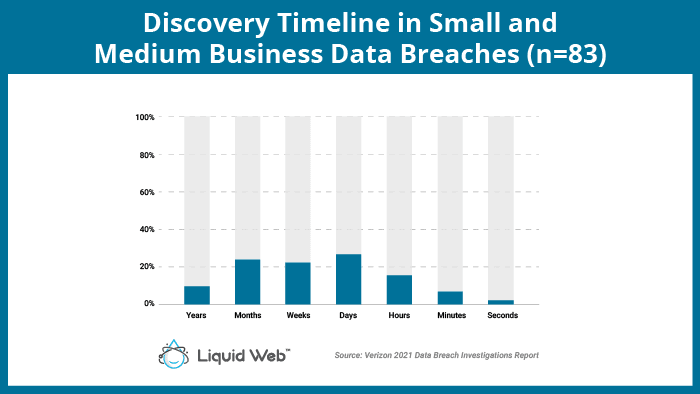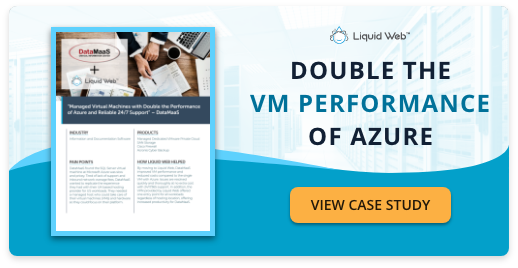Building an on-premises data center is a significant capital expense for businesses looking to modernize their IT infrastructure or implement cost reduction strategies. The alternative, cloud-based solutions, offer a more promising outlook for cost savings.
Public cloud providers are often considered cost-effective solutions in cloud computing. However, deploying your software on the public cloud presents several challenges.
Compliance concerns, operational complexities, and a lack of skills to maintain software on the public cloud can skyrocket IT spend and hurt long-term growth.
Migrating to managed private cloud can address these challenges while simplifying IT infrastructure maintenance and accelerating growth.
Ready to learn how to reduce overhead costs with managed private cloud? Let’s get straight to it.
10 Ways Migrating to Managed Private Cloud Helps With Cost Reduction
A managed private cloud migration solution can help you leverage the full potential of cloud computing technology for business growth. Here are ten ways migrating to the managed private cloud reduces your IT spend.
1. Does not Need Upfront Investment
Building and managing a data center can be a significant business expense. Capital investments into raw materials, equipment, and environmental infrastructure can eat into your operating costs.
Managed private clouds offer a cost-effective alternative without upfront expenditure. Managed private cloud hosting solutions give you the flexibility to access top-tier hosting infrastructure instantly and scale your business without worrying about the complexities of a data center.
2. Requires No Hardware Infrastructure Maintenance

Data centers generally provide you with physical space for your servers, access to power, and 24/7 data connectivity. However, they will bill you for maintenance and labor costs each time a fan goes out or if there’s a cable fault.
Managed private cloud hosting eliminates the need for hardware infrastructure maintenance. You pay a resource-based fee to your hosting provider, and they handle the infrastructure for you. You get access to 24/7 support without worrying about the power, networking, hardware, and security of the cloud infrastructure.
3. Eliminates the Need for an In-House Team
Payscale estimates that the average base salary of a systems administrator in the US is $ 63,603 / year. This number excludes other expenses such as bonuses, commissions, and administrative costs.
Factoring in benefits and overheads, it can cost you anywhere from $ 80,000 to $ 100,000 per employee per year to hire skilled IT talent. When you migrate to a managed private cloud solution, you do not need to invest in building your infrastructure or VM administration team.
Your hosting environment is managed by Windows, Cisco, and Red Hat Linux Certified technicians, 24/7/365, and at a fraction of the cost. And although outsourcing to a third party might seem intimidating, managed private cloud can help you reduce costs and run your software in a stable cloud environment.
4. Simplifies Data Security

A 2021 report by Verizon revealed that small and medium-sized businesses (SMBs) account for over 46 percent of all confirmed data breaches. Moreover, only 47 percent of all SMBs reported identifying breaches within “Days or Less.”
With security incidents reaching record numbers, maintaining a strong security posture is vital. Securing your IT infrastructure is not a one-off task. Staying a step ahead of the rapidly evolving threat landscape requires a multilayered, strategically designed cloud security architecture.
Managed private cloud hosting simplifies data security for online businesses. Solutions such as VMware Private Cloud rely on enterprise-grade hardware that allows service providers real-time control over their hardware, network, and physical hosting environment.
5. Minimizes Downtimes
Operating an in-house data center means when your hardware fails, you’re responsible for replacing it. That means buying more hardware than you need, navigating supply chain shortages, and tying up precious capital in expensive hardware.
26 percent of C-level SMB executives surveyed by Infrascale estimate the average hourly cost of downtime for their organization ranges between $ 20,001 and $ 40,000. Managed private cloud solutions offer higher redundancy than all but the most secure and redundant on-premises environments.
Managed private cloud solutions allow you to proactively move servers around for maintenance and updates. And in case of hardware failures, the only downtime you experience is the time your virtual machine needs to go from a power-off state to power on.
6. Facilitates Scalability

Cloud migration lets you scale your hosting infrastructure on-demand without being chained to equipment or assets the way you would with an in-house data center. However, even among cloud hosting solutions, managed private cloud solutions offer a distinct benefit for cost-cutting IT spend.
Public cloud hosting solutions are notorious for bill shock, a term used to describe the negative reaction service owners experience when faced with unexpected charges. A survey by 451 Research revealed that controlling costs was one of the top two concerns of public cloud adoption for small and midsize businesses.
Managed Private Cloud hosting by Liquid Web gives you access to hosting infrastructure based on simple pricing models. You know what you’re paying for upfront and can easily upgrade your hosting resources at any time. Predictable IT spend keeps you in control of your short-term operational expense.
7. Simplifies Software Performance Optimization
When your application performs poorly with an on-premises stack, you need to divert resources towards locating the problem in your software and the entire infrastructure. In contrast, you only need to focus on maintaining and optimizing your software and its associated components with a managed private cloud platform.
Managed private cloud hosting shifts the cloud infrastructure management and optimization responsibilities to the service provider.
You get a proactively monitored hosting environment that allows you to focus on the performance of your software instead of optimizing the entire underlying hosting infrastructure.
8. Lets You Use Legacy Software
If you’re forced to rely on legacy software or operating systems because of your business model or contractual obligations, you can migrate to a managed private cloud. The virtualized environment of managed private cloud hosting grants additional security as you rewrite or refactor your legacy code.
Managed private cloud service providers offer greater control over application usage and better visibility. When you migrate to a private cloud, you spend less time managing your hardware and can leverage the cost benefits of cloud computing services while using legacy applications.
9. Improves Productivity

Higher availability and lower downtimes result in better collaborations, greater flexibility, and agile decision-making. With your software hosted on a managed private cloud, your IT staff does not need to spend time learning new technologies or keeping up with changing regulations and compliances.
Managed private cloud eliminates the responsibilities of building, configuring, and maintaining the hosting environment. Your teams can focus on process improvement and delivering high-quality customer experiences without worrying about compliance requirements.
10. Lays the Foundation for a Digital Transformation
Migrating to a managed private cloud is one of the first steps you can take towards future-proofing your business with a digital transformation. Transforming your business into a cloud-native company can help you leverage automation and the latest technologies to lower costs.
Managed private cloud is one of the most cost-effective solutions in cloud computing for companies planning digital transformation initiatives.
In addition, managed private cloud solutions help you streamline customer experiences and leverage the benefits of cloud migration without worrying about infrastructural challenges.
Final Thoughts: 10 Ways Managed Private Cloud Helps Reduce IT Spend
On-premises hosting solutions do little to help your business scale. The public cloud, although scalable, presents operational challenges that complicate reducing IT spend.
Managed private cloud offers a simple way to implement cost reduction initiatives, optimize cash flow projections, and accelerate growth. Managed private cloud solutions act as a private virtual data center without any of the overheads.

